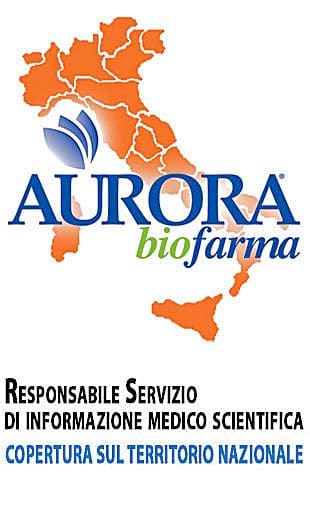Aurora Biofarma. L’ad Di Trapani “Ma lo Stato non ci aiuta ad assumere” Abbiano una struttura snella, con sette dipendenti nel settore amministrativo e circa 130 informatori scientifici disseminati in tutta Italia. “PER SUA NATURA, LA PROFESSIONE DELL’INFORMATORE SCIENTIFICO È UN LAVORO A PROVVIGIONE E FLESSIBILE”.
THE GOOD ECONOMY
Con un modello di business basato sui farmaci di alta qualità, Aurora Biofarma si sta ritagliando un’importante nicchia di mercato (10 milioni di fatturato previsti per il 2015) in un settore dominato dalle multinazionali. L’ad Di Trapani “Ma lo Stato non ci aiuta ad assumere”
by Alexis Paparo July 11, 2014 Economy up.it Italy that wants to grow
That the sector pharmaceutical in Italy is not in excellent health it has been known for at least two decades. At least thirteen closed or decommissioned research and production centers since 1998, especially of majors such as Pfizer, Novartis, Sanofi Aventis. Yet i numbers, che rendono l’Italia seconda solo alla Germania per valore della produzione farmaceutica in Europa, sono di tutto rispetto: 174 factories, 62,300 employees (90% graduates or graduates), 28 billion of production, of which 71 per cent is destined for the foreign market.
According to the latest data from Farmaindustria, exports grew by 14 percent in 2013 and by 64 percent in the last 5 years (with a 7 percent increase in the manufacturing average). The big ones are the masters multinationals del farmaco, colossi che hanno permesso al mercato italiano di rimanere a galla nonostante la crisi e per le quali l’Italia rimane un polo interessante sì, ma come centro manifatturiero d’eccellenza, while research and development is moved elsewhere.
Dove c’è meno burocrazia, pressione fiscale, meno complessità nella normativa del lavoro. A questo si aggiunge il fatto che il cliente privilegiato del settore farmaceutico classico è il National Health Service, very distressed. A substantially stationary market in which, in order to enter, you need to change the rules, perspectives and business models.
Questa la ricetta dell’azienda, che con i suoi farmaci, pensati per adulti, bambini e animali da compagnia, ha scelto di assecondare la health boost che arriva dall’Europa ma si sta diffondendo anche in Italia. “Oggi il consumatore è più consapevole, si documenta su internet prima di andare dal dottore – spiega l’amministratore delegato dell’azienda Nicholas DiTrapani – qualche anno fa era soddisfatto se usciva dallo studio medico pieno di ricette con altrettanti medicinali da assumere, today try to take fewer products, and if possible choose those of natural origin. This is the market in which we have tried to enter”.
To this is added one lean structure, con sette dipendenti nel settore amministrativo e circa 130 informatori scientifici disseminati in tutta Italia, e la possibilità di fare aggiustamenti e modifiche in corso d’opera a tutte le linee. Trasformazione di prodotto certo, perché “research is in the hands of multinationals that are able to amortize the costs spreading their products in various countries and we are not at this point yet”, but the choice seems to pay off.
L’azienda vanta infatti un AAA rating according to Basel 3 criteria and a growing turnover which in 2015 should reach 10 million euros. Un’azienda che punta molto sui giovani, visto che nel 90 per cento dei casi gli informatori sono giovani laureati con un’età compresa tra i 27 e i 35 anni, tutti a partita Iva. Una decisione che, secondo Di Trapani, porta innumerevoli vantaggi: permette al giovane di legarsi all’azienda e crescere con lei sia dal punto di vista professionale che economico, dato che the average salary reaches 3,000 euros a month. Proprio per puntare sulle nuove generazioni l’azienda si è aperta fin da subito al tutoring universitario, in collaborazione con le università di Milano e Pavia.
“In four years, between 200 and 250 young people have come to us. We we are still looking for staff, ma non esiste una forma legislativa che ci aiuti a formare un libero professionista, fornendogli per esempio un supporto economico mentre inizia a immettersi nel mercato – continua l’amministratore delegato – L’università ci ha proposto di creare un master, che però dovrebbe essere finalizzato all’assunzione a tempo determinato o indeterminato. Per sua natura, la professione dell’informatore scientifico è invece un lavoro a provvigione e flessibile”.
“Non sappiamo a chi rivolgerci – conclude Di Trapani – crediamo che la flexibility that both the State proposes should not only be the ease of firing but above all that of hiring and placing new recruits on the market”. The whole world of work, not just the pharmaceutical one, would benefit from it.
Ed.: We are sorry to read such sponsored articles. Especially for the definition and consideration that Mr. Di Trapani has against the informers. And to think that he should know the law and everything related to scientific information! As far as we know, he was in fact an informant at Bracco and then moved on as "Field sales manager" at AstraZeneca, before landing at Aurora Biofarma. You should know that scientific information on drugs is regulated by Legislative Decree 219/06 and in particular we invite you to read the articles from 119 onwards, especially 122. Nothing detracts from the courage and entrepreneurial initiative of the Mr. From Trapani, but if you want staff on commission and flexible and dedicated to sales, you should call it something else, not sales reps. It is true, Legislative Decree 219 also admits commission-based contracts, but in our opinion, due to its nature, the profession of scientific informant should be anything but flexible and commission-based, ie precarious and paid on sales.
